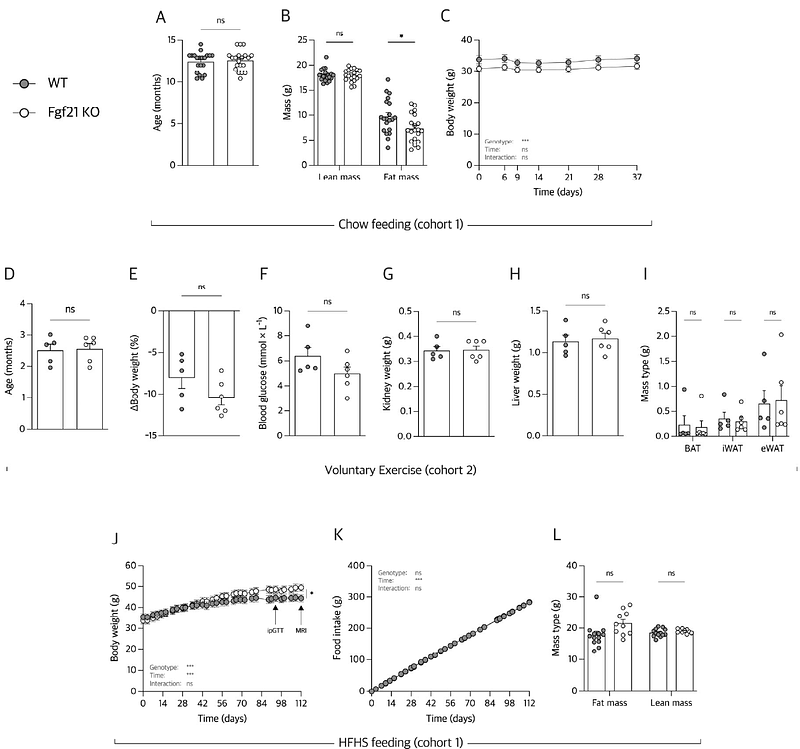Sex-specific metabolic responses to modulation of the glucagon-FGF21 axis in female mice

Sex-specific metabolic responses to modulation of the glucagon-FGF21 axis in female mice
Merrild, C.; Johansen, V. B. I.; Clemmensen, C.; Ranea-Robles, P.
AbstractFibroblast growth factor 21 (FGF21) and glucagon are key regulators of energy homeostasis. However, male-biased preclinical studies overlook critical sex differences in metabolism, hindering our understanding of FGF21\'s role in glucagon\'s effects on females and effective treatments for women with metabolic diseases. We investigated the physiological effects of FGF21 deficiency in female mice fed a chow or obesogenic diet. During chow-feeding, FGF21 deficiency had minimal impact on body weight, response to fasting, and voluntary exercise. However, Fgf21 knockouts (KO) fed the obesogenic diet exhibited increased adiposity compared to wild-type females. Long-acting glucagon analog treatment (LA-Gcg) reduced body weight in both genotypes but exacerbated glucose intolerance in female KOs. We also compared the effects of LA-Gcg and semaglutide, a glucagon-like peptide 1 analog, in diet-induced obese males and females. LA-Gcg treatment induced greater weight loss and reduced food intake in males, whereas semaglutide had similar effects across sexes. Furthermore, glucose tolerance was significantly worse in LA-Gcg-treated females compared to males. Concluding, FGF21 deficiency potentiates diet-induced obesity in female mice, and LA-Gcg elicits sex-specific effects on body weight and glucose tolerance, highlighting potential sexual dimorphisms to glucagon-based therapies and underscoring the importance of considering sex as a biological variable in metabolic research.